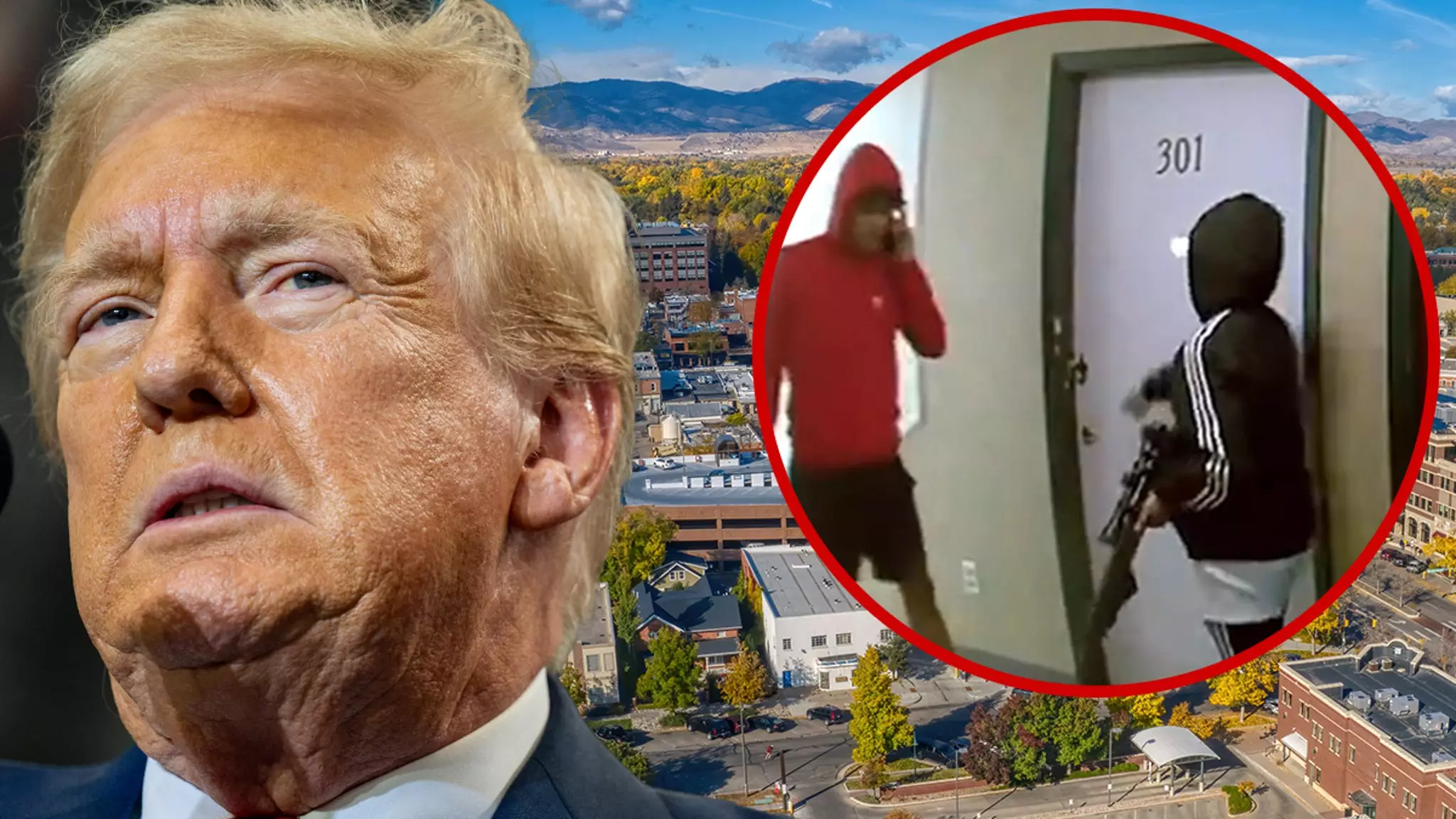Aurora, Colorado, a city with a population of approximately 400,000, is currently in the spotlight due to concerns surrounding gang violence and the potential implications of Donald Trump’s upcoming rally. As socio-political tensions flare, the city finds itself at the intersection of politics, community safety, and the immigrant experience. The rally, which is set to occur on Friday, raises eyebrows and concerns from both local officials and residents alike.
Recent reports have surfaced about the presence of the Tren de Aragua gang, an organization believed to be associated with violence and criminal activities primarily targeting vulnerable populations. The concerns focus on a disturbing video released by Councilwoman Danielle Jurinsky, depicting alleged gang members entering an apartment at gunpoint. Such incidents underline a pressing issue in the area that many local leaders, including Jurinsky, want to address.
Jurinsky, who has been vocal about the complications surrounding Trump’s visit, argues that the media portrayal of the rally could overlook the more significant conversations about community safety and support for immigrants. Her assertion that “we are all immigrants” echoes sentiments shared by many, emphasizing that the city’s identity intertwines with its immigrant population. By bringing attention to local gang violence, Jurinsky believes Trump’s rally can serve as a call for action rather than inciting division within the community.
The political backdrop to Trump’s rally is distinctly divided. While Jurinsky advocates for the event as an avenue for raising awareness about community issues, others, including Denver’s mayor, Mike Coffman, view it with skepticism. Coffman has explicitly stated that Aurora is not a “war zone,” in stark contrast to the narrative that Trump’s campaign seems to promote. His concerns reflect a wider apprehension about how Trump’s rhetoric could exacerbate existing fears and tensions in the area.
Despite his misgivings, Coffman, a Republican mayor, has stated he will be casting his vote for Trump in the upcoming election, highlighting the complexities of political loyalty amidst community issues. This dual stance, asserting both support for Trump while denying the characterization of Aurora as a dangerous place, illustrates a broader struggle within the political landscape where fear and safety are in constant negotiation.
As the day of the rally approaches, anxieties mount among residents and local politicians. While Trump’s supporters eagerly anticipate the event—lining up hours in advance—the community grapples with its implications. The contrasting perspectives surrounding the rally reveal a city in search of solutions, rather than sensationalism.
Ultimately, whether Trump’s rally marks a beneficial spotlight on pressing issues or merely an opportunity for divisive rhetoric remains to be seen. What is undeniably clear is that Aurora is a community at a crossroads, wrestling with its identity, the safety of its residents, and the narrative that will shape its future. Stakeholders must navigate these turbulent waters with sensitivity and a commitment to constructive dialogue while addressing the realities of violence and immigration in their city.

